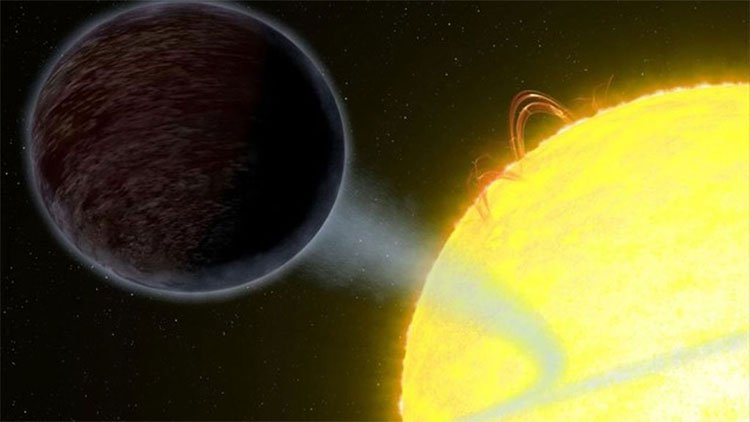Strange black planet 'swallowed' 94% of light
WASP-12b is a new, strange giant gas planet discovered by the Hubble Space Telescope of the US Aeronautics Agency (NASA). It is almost black due to absorbing 94% of the light shining on the surface.
- Discovering two "super-Earths" only 12 light-years away can hide life
- If 'stray' to any planet in the solar system, what is your chance of survival?
- How long does one day on the solar system planets last?
WASP-12b belongs to a class of giant gas planets called " hot Jupiter ", which has orbits near the host star and is heated to extreme temperatures. It is 1,400 light-years from Earth.

The daytime side of WASP-12b has a temperature of over 2,500 degrees Celsius, most molecules cannot last long here. This means that this place cannot form clouds that reflect light into space. Therefore, light penetrates deep into the surface of the planet and is absorbed by hydrogen atoms and converted into energy.
Previously, scientists who discovered many other hot Jupiter had considerable black color, but most of them reflected 40% of light so they had a much lower temperature than WASP-12b. They claim that clouds and alkaline metals are responsible for the absorption of light on these planets. However, on WASP-12b these things do not work because it is too hot.
WASP-12b is a planet locked in tides , it is always around its axis as it travels around a companion body. Therefore, half of the planet is always daytime and the other half is always at night making the difference between the two sides very big about 1,000 degrees Celsius. The reason is that the WASP-12b is too close to the host star. so it is so powerful by the gravity of the star that it is compressed into an egg shape.
You should read it
- ★ 2 more moons found around Jupiter
- ★ PSR B1620-26b - What's the oldest planet on the top of the 'elders' in the universe?
- ★ The mysterious 9th planet could be a 'free floating' planet
- ★ The distance from Earth to Jupiter - what is the largest planet of the solar system?
- ★ The discovery of the 'Second Earth' can exist only 4.2 light-years away from Earth